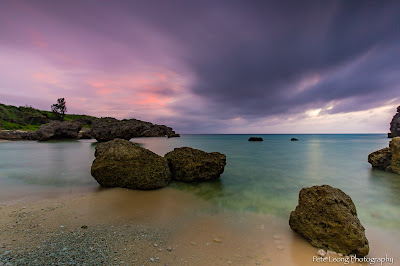Hey all! Been sick with the flu for the past few days as have Haruna and Jet. Work is starting to get busier now with more and more weddings coming up. ISM magazine recently did an interview with me for their mag about being a photographer in Japan. Heres a scan of it.

Heres a translated version of the interview for anyone interesting in reading it.
ISM: what things do you shoot as a photographer?
Pete: I shoot as a wedding photographer full time but also do freelance stuff for magazines, catalogs & photos for web pages for various companies and also sell to private buyers and stock photography via the internet.
ISM: why did you decide to shoot in japan? Pete: I first got into photography after first visiting Japan back in 2001. I loved to venture up into the mountains and soon realized there is so much fantastic nature here. After going back to australia for a couple of years working as a photographer for a magazine and tour company there I decided to move back to japan with my wife who is from fukushima.
ISM: whats good about fukushima. how do you feel about it. different from other prefectures?
Pete: Although I do miss the bigger cities sometimes, I think Fukushima is great because of its proximity to the mountains and nature. Within 30-40mins drive you can get out of the city and into some amazing country side and great mountains. I enjoy getting away to Tokyo now and then but after a few days down there Im always happy to get back to Fukushima for its slower pace and cleaner air.
ISM: what do you like to take photos of most?
Pete: I think I like sea and landscapes best because I love to see beautiful nature. I also love to shoot action sports like drifting, moto X and other extreme sports. More recently I’m getting into shooting models, but I still find it quite difficult.
ISM: whats fun and difficult as a photographer. and what was a special/interesting experience taking photos.
Pete: There are lots of fun things, otherwise I wouldn’t be doing it. I love getting an image back onto my pc or back from the photo lab and finding one great one in the bunch. Its also great to meet lots of interesting people and making art out of something that people usually wouldn’t look twice at.
The difficult things are as a professional you must produce 100% quality images all the time. Especially as a wedding photographer there is no room for error. A mistake from a landscape shoot is no big problem because I can always go back another time to reshoot. But with weddings if you fuck up theres going to be big problems because you only get one chance at it. So that can be a little daunting at times. A special time I remember taking photos was probably during a big thunder storm here in Fukushima a year or so back. I heard the lightning coming so prepared my camera gear as quick as I could and raced upto a lookout to get a good spot to shoot the lighting. I stood out in the lighting storm with my metal tripod and umberella and camera shooting with heavy rain, wind and insane lightning crashing down all around me. Very scary but way too much fun. And I ended up getting some great lightning shots of Fukushima city from it.
ISM: whats interesting about editing photos? Pete: I love playing around with photos to bring the best out of them. A lot of them I just leave as is. But some can be brought to a whole new level with the help of Photoshop and some other editing programs. I especially like making HDR images. HDR stands for High Dynamic Range photography and basically is a way of bringing out all the tones correctly exposed in a high contrast scene. This is one of my favorite forms of photography and my next exhibition will be all about HDR images.
ISM: whats your goals/plans for the future?
Pete: In the future I hope to keep improving and learning new skills in photography. But basically I would just like to keep doing what im doing now, but also get my work published in more magazines and hold much larger exhibitions. Some time in the future I would also like to teach photography and maybe even start a camera group for the younger generations because at the moment in Fukushima any camera/photography groups are mainly aimed at old folks so there aren't many places for younger people to mix with other artists or to learn and improve their skills. I enjoyed teaching English for 4 years so hopefully I can help other people get as much fun out of photography as I do.
 Heres a translated version of the interview for anyone interesting in reading it.
Heres a translated version of the interview for anyone interesting in reading it.

Comments